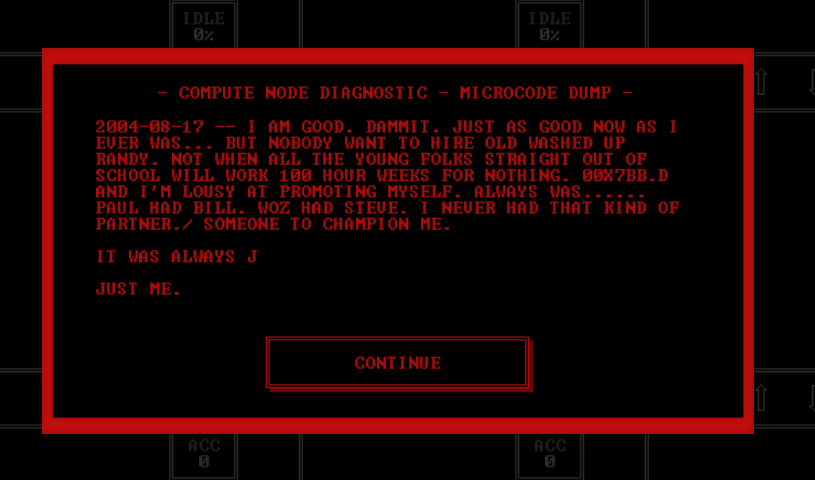chainsawriot
Home | About | ArchiveA story about a hyphen
Actually, I am quite tired of stories about cultural differences. You can see many of them on Youtube or Instagram. Many of the stories are kind of cliché. Suprisingly, there are not much stories about cultural similarities. That might say one thing: Division, but not unison, sells.

I am really sorry that I need to tell another story about cultural differences. This story could be a bit cliché-ish: I want to talk about names. Proper names in particular.
It is not that difficult to know my real name. I write my name in English as “Chung-hong Chan”. But I am telling ya, it sounds nothing like my name in my native language. The transliteralization doesn’t work. If you know IPA, my name should be pronounced: /tʃʼɐn tʃʼʊŋ hʊŋ/. I don’t know how to write the tones in IPA 1, but it should be 4,4,1. I don’t blame anyone for not being able to speak Cantonese because it is one of the hardest language on Earth. But the fact is, only the syllable “hong” has been correctly transliteralized and that’s why I prefer you to call me “hong”. It means wellness, a thing I need.
Other than that, the structure of my English name is different from my original name. In case you don’t know, the East Asian family name is actually the FIRST name. Therefore, Chung-hong Chan should be CHAN Chung Hong; Akira Kurosawa should be KUROSAWA Akira; Syngman Rhee should be RHEE Syngman; C.K. Yen should be Yen Chia Kan. However, some official English names do say the family name first. Xi Jinping’s family name is Xi; Tsai Ing-wen’s family name is Tsai; Lee Hsien Loong’s family name is Lee; Ban Ki-moon’s name family is Ban. Now you know how chaotic it can be.
Now, let’s talk about the hyphen. Officially, there is no hyphen in my name. I, like many people, add the hyphen in between rather than using “Chung Hong Chan”. It is because I don’t want people to consider the Western conceptualization of my first name is Chung and Hong, my prefered part, is the Western conceptualization of my middle name. I want you to know that my last name (or the Western conceptualization of my first name; OMG, it’s complicated) has two syllables. Let’s say “given name” and “family name” from now.
There are also different ways to deal with this. In Communist China, people usually just combine all the syllables into one word: Jinping, Jintao, Zemin, Xiaoping, Guofeng, Zedong; In the pre-communist China, the most common way is to combine the syllables with a hyphen: Kai-shek, Yai-sen, Mei-ling. Taiwanese somehow have continued this trend and thus: Ing-wen, Ying-jeou, Shui-ban, Teng-hui. The capitalization is a bit variable. In 1983, Tsai Ing-wen wrote her name as “Tsai Ing-Wen” on her thesis.
Then, let’s talk about an East Asian (i.e. me) who has manufactured his given name with a hyphen, but happens to be in Germany.
In Germany, hyphen has different functions. One function is called Der Bindestrich. This is not another blog post about the complex German grammar. But what I want to say is that there is a thing called Doppelname in German: given name that is a combination of two given names. There are Doppelnamen such as Marianne (Maria / Anne) and Liselotte (Elise / Charlotte). Another group of Doppelnamen is called Doppelnamen mit Bindestrich. I think the common ones are Hans-Jürgen, Hans-Peter, Anna-Maria, Anna-Katharina. It’s not that Hans-Peter’s given name is Hans and his middle name is Peter, but his first name is Hans-Peter…. with a twist! You can also call this person Hans. Often, it is okay to drop the second part. OFTEN! But not ALWAYS.
Having a hyphen in any part of the name can be a problem for a lot of computer systems. For example, the pessenger name record system of several airlines cannot handle hyphen and converts hyphens to spaces. Many German computer systems make different assumptions about hyphen in given name. It is quite common for me to receive letters addressing Herrn Chung Chan. Humans do that too. It is quite common for me to receive e-mails calling me “Chung”; usually from people I have never met in real life.
That’s probably the reason why many East Asians have another Westernized given name, e.g. Bruce Lee, Lucy Liu, Michelle Yeoh, Jessica Jung, Francis Fukuyama. Some nth-generation Asian Americans have these Westernized given name but no “Asian” first name. I know it’s less ambiguous. But I don’t like to use this kind of Westernized name. I gave one myself when I was young 2. But I like to use my original name since my twenties, /tʃʼʊŋ hʊŋ/, which was given by my late grandfather.
But I just wanted to make it clear that I am not complainting anybody for calling me wrongly. My name is not that important. As long as it is not derogatory, you can call me whether you want. The above is just a story. Unlike fairy tales, a story doesn’t always contain judgement. If there were a judgement, maybe the judgement is that proper names are more complicated than pronouns. There have been many voices about not making assumptions about pronouns. Maybe it’s also time not to make assumptions about parsing proper names.